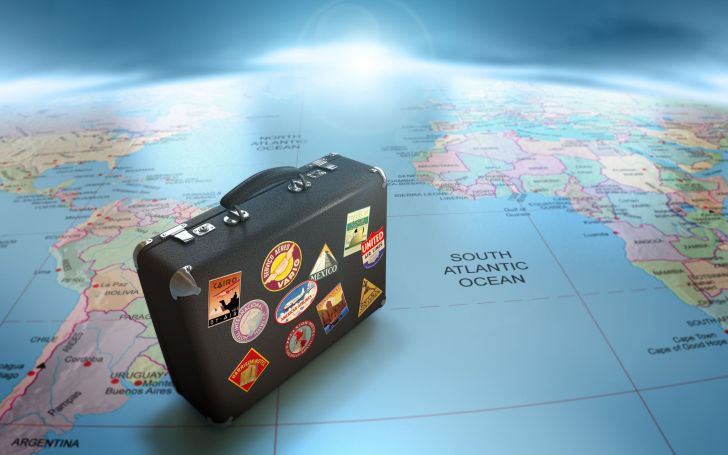Travel Grants for Graduate Students – We understand that graduate students are often required to make some journeys to attend some events that are related to their research or thesis. Sometimes, the student can attend the events such as seminar, workshops or programs in their own city. However, it is also pretty common that they have to travel to outer states or even travel abroad to attend these events.
Traveling has never been cheap, and it is pretty common that graduate students are low on budget. Therefore, searching for travel grant opportunities for graduate students might be a good idea. Today we’re going to discuss about the sources where you can find such financial aid.
Where to Get Travel Grants for Graduate Students 2015
Here are some available travel grants that gradate students can apply for in 2015:
Private and State Universities
Probably the most widely available source of education grant; there are many universities that provide a small grant program that accommodate their graduate students, allowing them to make some travels to the events that are related to their thesis. Needless to say, the program is only available for that particular university’s students.
Universities such as MIT, Cornell, UCSC, Berkeley, etc. Have their own respective program that can help their grad students visiting conference, seminar, workshops, etc. Typically, the university provides the grant award for some selected students because the funding is limited. The money received varies between universities, but usually they range between $500 to $2,000.
The name of the program offered by these private and state universities may different from one another. Some might call it travel grant, while other includes it in their research grant program. Typically, the university expects that you’ll submit the application 14 days before your departure. We highly suggest you to visit your university’s financial aid office to ask more information about the eligibility and the selection process of the grant.
Educational Associations
Another good source of this type of grant is educational associations. It is common that there’s an association for each discipline of study. For example, the American Mathematical Society (AMS) provide grants for traveling abroad that allow students from mathematical-related studies to attend joint mathematical meetings or their AMS sectional meetings.
The American Studies Association also provides the graduate students with grants that can be used for traveling expenses called the Annette K. Baxter travel grant program. Association for Slavic, East European & Eurasian Studies (ASEES)also provide a program called the Davis Graduate Student Travel Grant, which provides 18 grant awards annually, each amounts up to $500.
Typically, you have to be a member of those associations. There may be some additional requirements and the grant is not awarded to everyone. There’s a selection process and you may have to write a paper to qualify. Most associations decide that the grant can only be assigned once. If you have previously received the grant, then you are not eligible anymore.
Other Options
While both sources above are available for short trips, there are other programs that can provide you with financial aid for longer trips for studies abroad. Some good examples are the Marshall Scholarships, Rhodes Scholarships, Fulbright and Watson Fellowship. These four are the major source of money for students looking for education abroad. There are also some programs that are based on the study you will be taking. But since we are focusing on short trips, we will discuss those graduate students travel grants in another post.
All Things to Know About Travel Grants for Graduate Students
Before applying for any travel grants for graduate students from the sources above, here are some important things to know about all travel grants:
Coverage
A student travel grant is like a financial support to help you attend a conference. It often covers things like your travel expenses, where you stay, and the fee to join the conference. Not every conference offers these grants, but in the computer science fields, especially in systems or security, the big ones usually do.
Application
To get one, you usually have to be a student when the conference happens. Sometimes, if you’re a postdoc or a new faculty member, you can apply too. You usually have to send in your application some weeks or months before the conference. This application usually includes a letter explaining why you need the grant, your resume, and a letter from your advisor supporting your application.
A strong application for a student travel grant needs to show that you really need the grant to go to the conference. It’s surprising how many applications forget this! In your letter, talk about where you are in your studies, what you’re interested in, and why going to the conference is important for you. Explain how you could add to the conference too.
The travel grant is just there to help you out. If you apply on time and your application gets approved, you’ll usually find out how much you’ll get before you book anything. This amount is the most you’ll get back, but not always exactly what you spend. The person in charge of the grants will decide how much you’ll get based on the receipts you give them.
Hopefully, the grant will cover everything, but it’s up to you to try and make that happen. If the trip ends up costing more than expected, maybe your group or school can help with the extra, but you need to know what’s possible. If not, you might have to pay the extra yourself, on top of what the grant gives you.
Reimbursement
Make sure to carefully read the conference’s grant policy and follow the application instructions closely. Usually, the travel grant works as a reimbursement. This means you’ll have to pay for your travel expenses upfront and then get reimbursed later. It might take weeks after the conference ends for you to receive the money. The conference organizers need time to process your paperwork, verify your expenses, and send out the reimbursement checks. So, be prepared to wait a while before you get the money back.
If covering the travel expenses on your own until you get reimbursed is really tough for you financially, it’s a good idea to discuss this with your advisor or look into other funding options at your school. The people in charge of conference travel grants probably won’t be able to assist you with this matter.
Financial Conditions
It’s important to be realistic about your financial needs. If you’re from a U.S. school that’s known to have plenty of money and you ask for $2000 to attend a conference in Boston, your application might not be looked upon favorably. On the flip side, if your school is struggling financially and you need to travel far, the costs can add up quickly.
It’s helpful for the people reviewing your application if you clearly show the expenses involved. Most importantly, the application probably asks for an estimate of how much money you need to attend. Be sure to provide this, especially if you already have some funding and only need help with certain expenses, like conference registration.
References:
- Davis Graduate Student Travel Grant – http://www.aseees.org/convention/grants/davis
- Image: peerj.com
- (https://medium.com/@ckreibich/a-conference-travel-grants-howto-5298e90a19c5)




